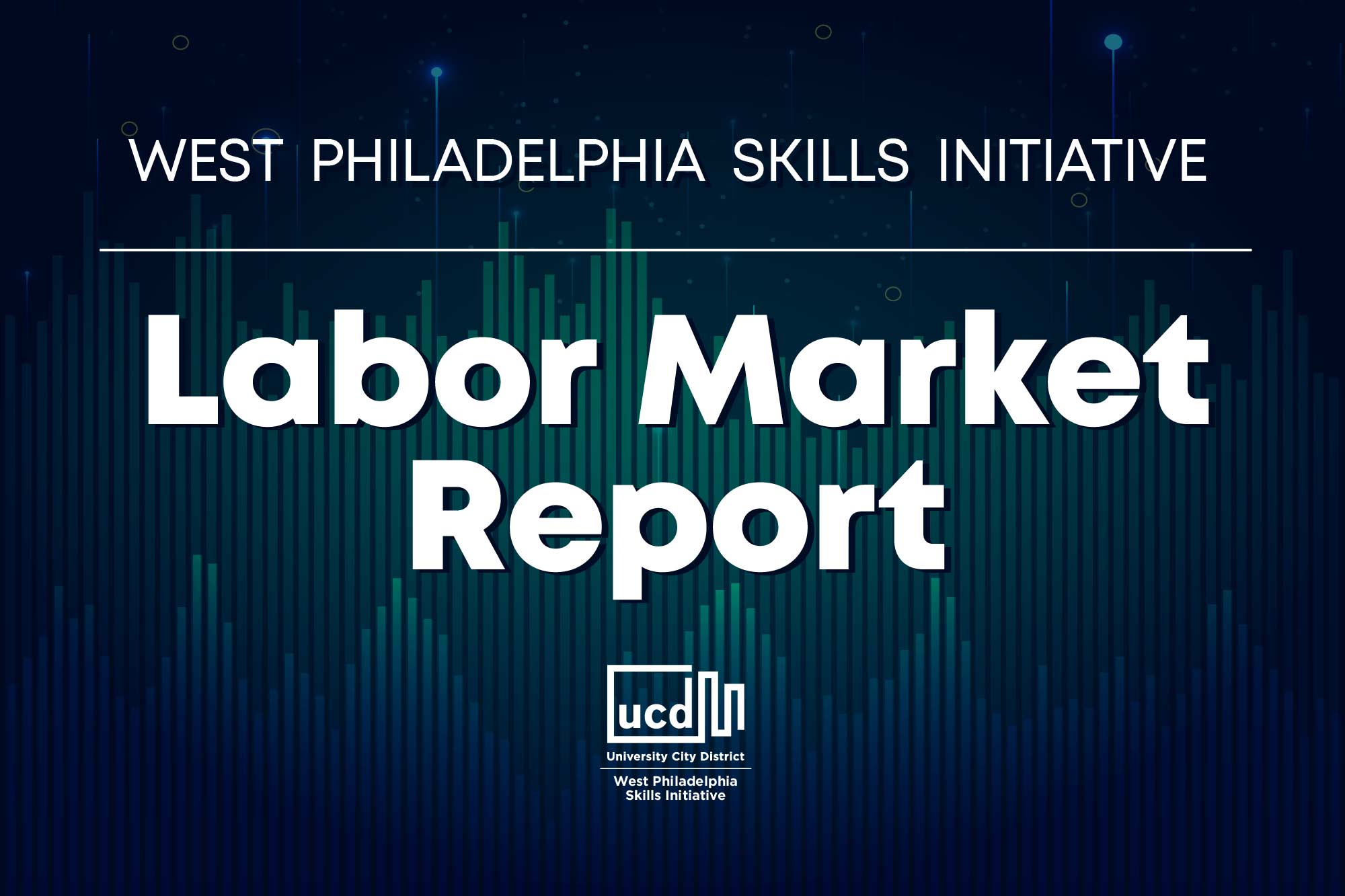Every week, we will be publishing labor market industry (LMI) data and important trends to consider in the development of an equitable economic recovery from the COVID-19 crisis. We are always looking for opportunities to learn, grow, and collaborate. Email wpsi@universitycity.org to learn more.
We have spent the last few months looking at the impact of COVID-19 on the labor market by analyzing job postings. In the last month, the number of job postings has stabilized somewhat in the Philadelphia region, at around 65-70% of pre-COVID levels. This helps us understand the demand side of the equation, but how does that compare to the supply of workers?
We have seen the stories about record levels of unemployment claims. While new weekly claims have begun to decline week over week, they are still well above the peak level of new claims during the Great Recession. As of mid-July, around 31.3 million Americans were receiving some form of unemployment compensation (UC). Some argue the additional $600 weekly federal payments in addition to state UC is a disincentive to work, claiming that because many workers are, in fact, receiving more weekly take-home pay from UC than they were from the jobs they worked before COVID, we cannot begin to rebuild the economy if workers are better off staying home.
Even if we set aside the health implications of people returning to traditional work, there are simply not enough jobs being posted to absorb the huge influx of unemployed individuals. Businesses decide to hire more staff to meet greater demand, and outside of a few industries, that demand continues to be weak. Before COVID hit, much of the growth in the economy was being driven by consumers buying goods and services. The expanded UC benefits are often being used by those same consumers to do things like pay rent and utilities, buy groceries, and order takeout from local restaurants. It’s easy to imagine that without that support, demand would drop, leading to more business closures – which ultimately leads to less opportunity for good jobs and an equitable recovery.
What makes the timing even scarier is that businesses are already beginning to make temporary furloughs permanent layoffs. The number of permanent job cuts by businesses increased by 54% in July. As the pandemic continues to rage out of control in the US, companies are seeing no end in sight, and are planning additional cuts later this year. Already, airlines are making preparations for massive job cuts later this year and into next. Retail stores, already struggling to compete with online shopping, are shutting down or filing for bankruptcy at the highest rate in years. Additional reductions in demand would put even more businesses in jeopardy.
In a piece for Generocity, University City District President Matt Bergheiser recently argued that “the pathway to a flourishing Philadelphia is paved with shared gains from an economic rebuild.” We at the Skills Initiative are not policy makers, but we believe that programs like ours can play an important role in the recovery. We are preparing to launch our first post-COVID recruitment in the coming weeks. Our program will be an opportunity for participants to learn job skills, connect with peer professionals, and earn credentials. During their time in the program, they will receive a small stipend, and have all costs of training covered. When they graduate, they will be ready to join a growing industry, and be examples of how we can use this time to support a faster and more equitable recovery. If now isn’t the right time to invest in the workers and consumers who make our economy function, when is?
| Last Week: July 26th – Aug 1st | Percentage Change from Feb 15th | Week over Week | |||
Industry | Phila Metro | Phila City | Phila Metro | Phila City | Phila Metro | Phila City |
Health Care & Social Asst. | 2433 | 1096 | -44% | -36% | -12% | 14% |
Professional, Scientific, and Technical | 804 | 316 | -42% | -28% | -19% | -18% |
Retail Trade | 1767 | 201 | 17% | 38% | -35% | -26% |
Finance & Insurance | 753 | 233 | -45% | -33% | -8% | 7% |
Accommodation & Food Service | 959 | 155 | -11% | -42% | 40% | 1% |
Manufacturing | 839 | 142 | -29% | 0% | -8% | -19% |
Admin, Support, Waste Management & Remediation | 515 | 140 | -48% | -10% | -21% | -9% |
Educational Services | 576 | 273 | -32% | -10% | -7% | -14% |
Transportation & Warehousing | 382 | 121 | -50% | 46% | -11% | -3% |
Information | 295 | 112 | -40% | -48% | 12% | -7% |
Other Services | 281 | 46 | -50% | 0% | 5% | -33% |
Public Administration | 266 | 114 | -25% | -7% | 1% | 7% |
Real Estate & Rentals | 230 | 78 | -18% | -19% | -7% | 4% |
Construction | 200 | 59 | -41% | 47% | -15% | -6% |
Arts, Entertainment & Recreation | 100 | 31 | -42% | -40% | -45% | -69% |
Wholesale Trade | 74 | 3 | -8% | -50% | 14% | -57% |
Utilities | 43 | 5 | 26% | -27% | 39% | -29% |
Mining, Quarrying and Oil & Gas | 27 | 4 | -7% | -29% | 50% | -56% |
Management of Companies & Enterprises | 16 | 7 | 0% | 140% | 7% | 40% |
Agriculture, Forestry, Fishing and Hunting | 7 | 3 | -74% | -71% | -61% | -63% |
Unspecified | 3412 | 1096 | -27% | -1% | 1% | 5% |
Total | 13979 | 4235 | -34% | -40% | -10% | -3% |
About the data: Data is sourced from Burning Glass Technologies Labor Insights, unless otherwise noted, covering job postings in the City of Philadelphia and the Philadelphia Metro Statistical Area (MSA), which is comprised of roughly a circle surrounding Trenton, Philadelphia, King of Prussia, Camden, and Wilmington. This data is then compared to a benchmark week of February 9th – 15th, which was the last week before the economic impact of COVID-19 began to be reflected in job posting data.

